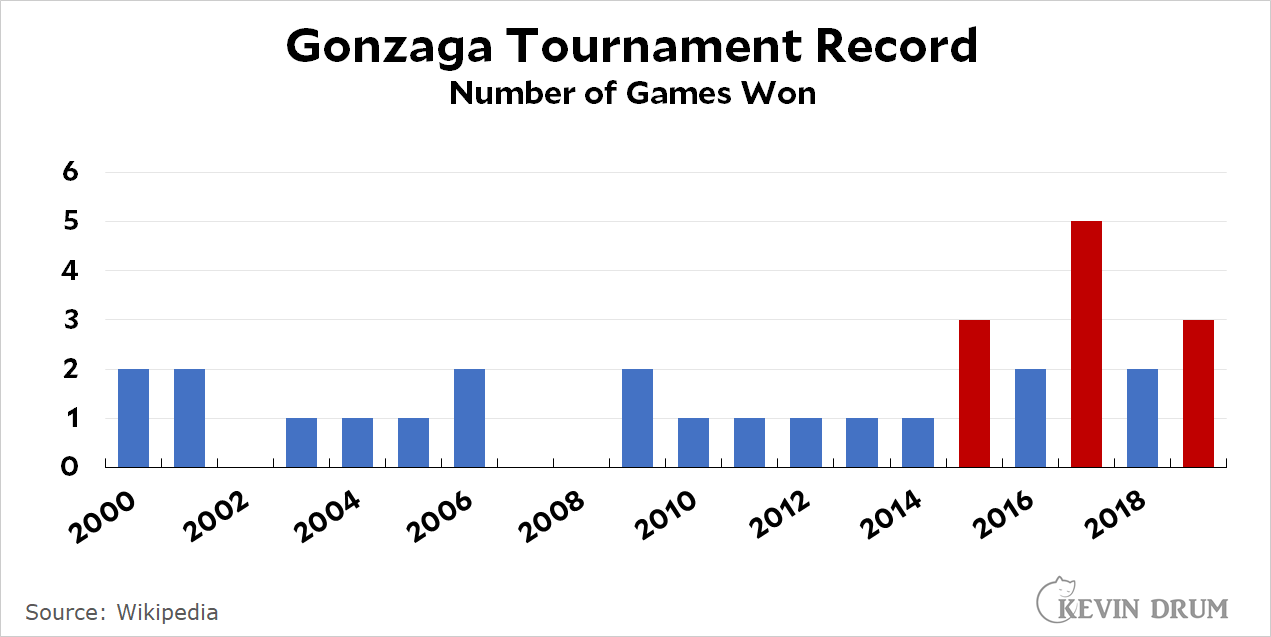This is a mandrill at the San Diego Zoo. He's sporting a very hipster beard and a steady gaze. And such tiny little ears!

Cats, charts, and politics

This is a mandrill at the San Diego Zoo. He's sporting a very hipster beard and a steady gaze. And such tiny little ears!

The problem with conspiracy theories is that some of them turn out to be true. And even some that aren't true can seem pretty plausible.
For example, was the COVID-19 virus an accidental release from a Chinese lab? The experts all say no, but it sure is a coincidence that there's a major Chinese virology lab right in Wuhan. And if that's not enough, the real kicker has been China's long and persistent refusal to fully cooperate with international teams investigating the origin of the virus.
What on earth do they have to hide? That maybe local officials were slow to react? That the vector was a mink, not a pangolin? Even for an autocratic state like China, it's hard to imagine what they gain from all this. Everyone already knows the virus originated in China, so what's the value of being so opaque?
You'd think the Chinese leadership would have learned their lesson from the SARS epidemic. After that no one trusted them to provide honest data about viral outbreaks, and now they've redoubled that mistrust. In the end, this is the source of the conspiracy theories, and China has no one to blame but itself.
Paragraphs I never expected to read:
Complaints to a government-run inter-floor-noise-dispute resolution center soared by more than 60% in 2020 compared with the year before, according to the Korea Environment Corp. But the center has a months-long backlog, and neither its mediators nor the police can offer much recourse beyond measuring decibels and urging neighbors to be more considerate of one another.
The full story is here. Middle-class life in Seoul is apparently more harrowing than I knew.
Here’s the officially reported coronavirus death toll through March 29. The raw data from Johns Hopkins is here.

This is not a sports blog and I'm not a big college hoops fan, but we could all use a break from politics, couldn't we? So today's topic is the Gonzaga men's basketball team
Here is my sense of Gonzaga: Every single year they have a great record and they get a bunch of attention. And every single year they win a couple of tournament games and that's it.
Some quick googling confirmed this: Gonzaga has advanced past the Elite Eight only once in its history. This doesn't mean that Gonzaga has a bad record. Quite the contrary—especially for a small-school team from Spokane. But neither do they seem to have a record that quite matches their reputation.

This year they're undefeated and there's even talk that Gonzaga will not only finally win the Big Dance, but that they might be the greatest men's basketball team of all time. All time! As I mentioned, I'm not a big hoops fan, but I can still think of some pretty good teams from the past. So once again I googled and took a look at their schedule this year. Gonzaga is indeed undefeated, but in their entire season they've played only one top ten team (#8 Iowa) and that was way back in December.¹ And of course a big chunk of their schedule was against a bunch of West Coast Conference patsies.
So school me. I'm really curious. Why the hype about this year's team maybe being the best in history? Why is their undefeated season getting so much attention without even an asterisk about their relatively easy schedule? Why is a team that hasn't played a top ten opponent since December considered practically a shoo-in against the top four teams they'll have to play to win it all? Help me out here.
¹I'm not trying to stack the deck here. They also won several games against top 20 opponents, and obviously that says a lot. And it's tough to go undefeated, no matter what your schedule is like. They're a good team! But are they really in the running for best of all time?
Michael Brendan Dougherty takes aim at the idea of issuing "vaccine passports":
Let’s be absolutely clear. Even if you put aside all the privacy and constitutional concerns, vaccine passports do not allow us to reopen the economy faster....Second, we have no way of knowing right now whether such a system really facilitates people “reentering” normal life....Third, even if you could institute such a surveillance system, it would also bar people who — for whatever reason — can’t access the vaccine, not just the anti-vaxxers who deserve punishing.
....One other note. This is absolutely the wrong battle to choose with anti-vaxxers. Trying to institute a kind of medical rider to the Bill of Rights is very likely to fail in courts if tested seriously.
I think the point is being missed here. I agree that vaccine passports won't help us open the economy faster. I also doubt that they will make it easier to "re-enter normal life," whatever that means. And yes, it might cause some problems for people who legitimately can't get vaccinated, though that seems like an easily solved problem.
And yet, I still like the idea. Here's the thing: it's basically a free-market solution to the problem of vaccine free riders. Nobody is forcing anyone to get vaccinated. You're simply being given the option of being able to prove your status in case some private entity asks about it. And private entities are surely entitled to do as they please, right?
That's the conservative approach, anyway. The upshot, of course, is that going unvaccinated will become a huge pain in the ass if stores and restaurants and employers start closing their doors to anyone who doesn't have a vaccine passport, and this will spur even the doubters to get vaccinated. This is roughly the way smallpox was eliminated, though sometimes the methods were considerably rougher than this.
It's also worth noting that this is not some kind of "medical rider" to the Bill of Rights. Over a century ago, a very conservative Supreme Court—the same one that handed down the Lochner decision a year later—ruled that public health was at the core of the state's responsibilities: "Of paramount necessity, a community has the right to protect itself against an epidemic of disease which threatens the safety of its members." In other words, vaccines could be mandated by the state. A few years later they confirmed that ruling and added that states could also mandate vaccinations for children before they were allowed to attend public schools. As part of both rulings, they noted that mandatory vaccination did not violate the 14th Amendment.
A vaccine passport is considerably less intrusive than this and surely within the authority of the federal government to issue. After that, it's all up to the private sector as long as state legislatures stay out of the way and allow private entities to do as they wish. Which they should. Right?
An alternative, of course, is to simply mandate vaccinations, something that states clearly have the authority to do. Given Supreme Court precedent on this subject, I'd be all for it. COVID-19 is no joke and it's not just the seasonal flu. It's deadly, it's likely to become endemic, and acquiring herd immunity is going to be hard. It's a real-life emergency, not something that should become a tiresome political football tossed around by people who treat it as a libertarian debating point.¹
But I'm willing to compromise on a vaccine passport instead. This assumes, naturally, that the passport is something that's feasible in the real world. If it's not, then maybe we'll have to go down the mandate path.
¹Though if it is, I guess I'd say that allowing people to remain potential spreaders of a deadly virus is not much different from allowing people to punch you. I'm opposed to both.
The New York Times apparently has a crystal ball that allows it to see the future:
Remote Work Is Here to Stay
A year after the coronavirus sparked an extraordinary exodus of workers from office buildings, what had seemed like a short-term inconvenience is now clearly becoming a permanent and tectonic shift in how and where people work. Employers and employees have both embraced the advantages of remote work, including lower office costs and greater flexibility for employees, especially those with families.
....At least one industry, however, is charging in the opposite direction. Led by some of the world’s largest companies, the technology sector has expanded its footprint in New York during the pandemic. Facebook has added 1 million square feet of Manhattan office space, and Apple added two floors in a Midtown Manhattan building.
What gets me about this is that the author seems so sure of himself. It never ceases to astonish me how often people react to a temporary turn of events by insisting that it will last forever.
And who knows? Maybe the Times is right. But take a look at the second paragraph above. Apple and Facebook know all about Zoom and flex hours and the benefits of working at home because they've been dealing with it for the past couple of decades. And Silicon Valley is eager to sell tons of new product to enable other companies to do the same.
In other words, the industry with the most experience at remote work and with the most to gain from it—the tech industry—is charging back into old school offices. Perhaps they know something that the newbies don't?
I'm not foolish enough to say that literally nothing will change following the pandemic. Remote work has been slowly growing for years and I wouldn't be surprised if it gets a boost from the forced experience of tolerating it over the past year. But I'm still willing to bet that remote work becomes only modestly more popular, with the vast majority of office workers continuing to work in offices. The downsides of remote work—which get shrugged off when you have no choice—are going to become far more glaring to both workers and employers once they actually have a choice of what to do.
Cypress College was built in the late sixties and features a sort of neo-brutalist esthetic with lots and lots of concrete and exposed piping. Here's a good example, with some nice, sharp shadows shot right around noon. This is one of the few kinds of photographs that are better when the sun is high in the sky.

Via Aaron Sojourner, here's a surprising chart of public opinion:

After the Great Recession, big business remained unloved by the American public but labor unions went in the opposite direction. On a scale of 1-100, they are now at their highest level since polling on the question began.
This is roughly confirmed by GSS polling, though it's worth noting that the y-axis is cut off in the chart above, which makes the change look bigger than it really is. Still, it's a bit of a surprising result. Are unions really making a comeback? We can hope.
Here's the latest on California's high-speed rail project:
Early March: Construction company notifies HSR authority that it will not complete a section of the project through Kings County until 2025.
Late March: Authority shrugs, releases new business plan that says it will be done in 2023:
Later in March: LA Times asks about this, is told it's no big deal, just "part of a back-and-forth bargaining process normal in the construction industry."
It is left as an exercise for the reader to decide if even the 2025 date is likely to be met.